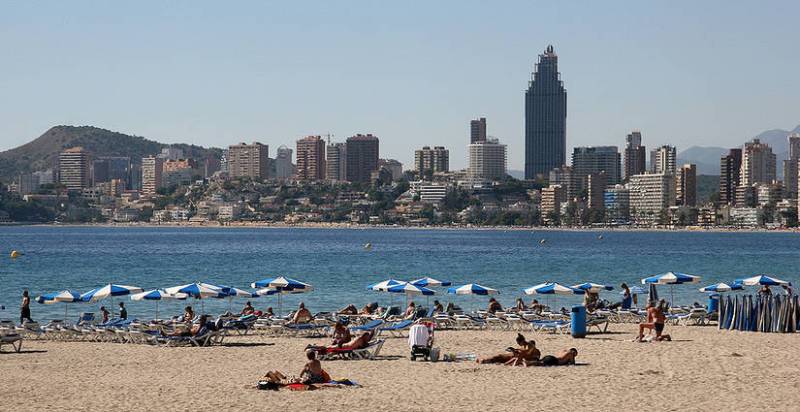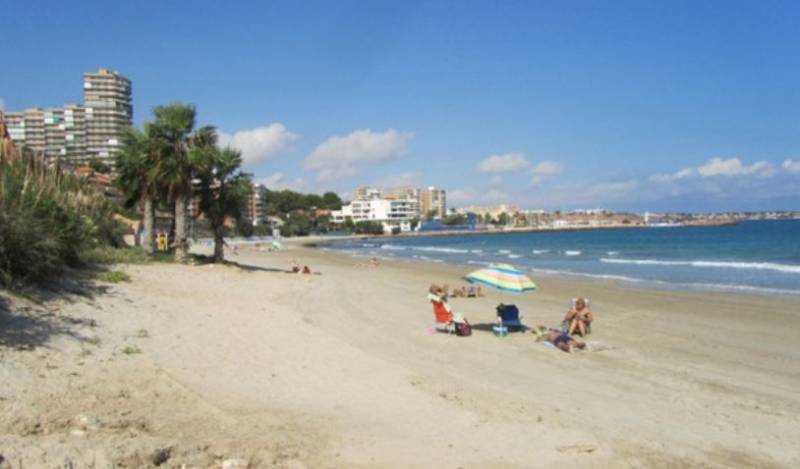- Region
- Vega baja
- Marina Alta
- Marina Baixa
- Alicante
- Baix Vinalopo
- Alto & Mitja Vinalopo
-
ALL TOWNS
- ALICANTE TOWNS
- Albatera
- Alfaz Del Pi
- Alicante City
- Alcoy
- Almoradi
- Benitatxell
- Bigastro
- Benferri
- Benidorm
- Calosa de Segura
- Calpe
- Catral
- Costa Blanca
- Cox
- Daya Vieja
- Denia
- Elche
- Elda
- Granja de Rocamora
- Guardamar del Segura
- Jacarilla
- Los Montesinos
- Orihuela
- Pedreguer
- Pilar de Horadada
- Playa Flamenca
- Quesada
- Rafal
- Redovan
- Rojales
- San Isidro
- Torrevieja
- Comunidad Valenciana
article_detail
Date Published: 08/04/2025
AI-powered crypto scam swindles €19 million from Alicante victims
Police have issued a warning to the public after more than 200 people were defrauded in an elaborate scheme
 More than 200 people have fallen victim to a sophisticated scam in Alicante that used artificial intelligence to create fake cryptocurrency investment ads featuring well-known public figures to lure people into parting with their money.
More than 200 people have fallen victim to a sophisticated scam in Alicante that used artificial intelligence to create fake cryptocurrency investment ads featuring well-known public figures to lure people into parting with their money.A joint operation between the Policía Nacional and the Guardia Civil has led to the arrest of six people, aged between 34 and 57, in Playa de San Juan, Santa Pola, Torrevieja and La Vila Joiosa, all in the province of Alicante. Officers have identified 208 victims and say over €19 million has been lost to the scam.
The investigation began more than two years ago, after a man from Granada reported being tricked out of €624,000. That complaint uncovered a wider network operating across Spain. Working together, investigators in Granada and Alicante connected the dots and found the same criminal group was behind similar cases involving document falsification and crypto fraud.
Victims were not chosen at random. Instead, algorithms were used to target individuals whose online profiles suggested they might be interested in investment opportunities. The fraudsters placed convincing adverts on websites and social media offering cryptocurrency investments with high returns and no risk.
AI technology was then used to create fake videos and voiceovers, making it appear that well-known public figures were personally recommending the investments. This added a sense of credibility and encouraged many people to invest small amounts at first. When these initial deposits appeared to generate profits, the victims were persuaded to invest more, and many ended up transferring all their savings.
The scammers built trust by posing as financial advisors and, in some cases, even pretending to form romantic relationships with their victims. They backed up their lies with fake websites and documents showing false profits.
When victims eventually tried to withdraw their money, delays and excuses began. That’s when many realised they had been scammed. But for some, the fraud didn’t stop there. They were later contacted again by the same criminals, this time pretending to be investment managers who could “unlock” their frozen funds if the victim made another payment.
Some victims were even tricked a third time. After reporting the scam to police, they were contacted by fake Europol agents or bogus lawyers from the UK, who claimed to have recovered the funds. To release the money, they asked for a payment to cover taxes in the country where the funds were supposedly held. Desperate to get their savings back, many victims paid yet again, only to be cheated once more.
The group had set up multiple companies across Spain to funnel the stolen money and used dozens of fake identities; one of the suspects had over 50 aliases. Police have so far managed to block more than €100,000 of the stolen funds, but the investigation is still ongoing, with other suspects identified abroad.
The suspected ringleader, a woman living in a rented home in Playa de San Juan, was allegedly preparing to flee to Dubai when she was arrested. Officers seized phones, laptops, hard drives, false documents and even a replica firearm. She has been remanded in custody following her appearance in court.
The operation was coordinated by the technological crimes prosecutor in Granada, along with Group III of the Anti-Immigration and Document Forgery Unit (UCRIF) of the Policía Nacional in Alicante, and the Technological Crimes Investigation Team (EDITE) of the Guardia Civil in Granada.
How to stay safe from scams like this
The Policía Nacional and Guardia Civil are reminding the public to be cautious of too-good-to-be-true investment offers, especially those promoted online. Here are their key tips:
- Be suspicious of guaranteed high returns; real investments always carry some risk
- Always check whether a company is officially registered, for example with the Bank of Spain
- Don’t trust investment ads just because they feature familiar faces. Images and videos of public figures can be faked with AI
- Avoid pressure tactics. If you’re being rushed into investing or asked to send more money to “unlock” funds, walk away
- Never share personal or banking details with someone who contacts you out of the blue via social media, email or messaging apps
- If you think you’ve been scammed, report it immediately to your nearest Policía Nacional or Guardia Civil station
Image: RDNE Stock project/Pexels
staff.inc.ali
Loading
Sign up for the Spanish News Today Editors Roundup Weekly Bulletin and get an email with all the week’s news straight to your inbox
Special offer: Subscribe now for 25% off (36.95 euros for 48 Bulletins)
OR
you can sign up to our FREE weekly roundup!
Read some of our recent bulletins:
Discount Special Offer subscription:
36.95€ for 48 Editor’s Weekly News Roundup bulletins!
Please CLICK THE BUTTON to subscribe.
(List price 3 months 12 Bulletins)
Read more stories from around Spain:
Contact Murcia Today: Editorial 000 000 000 /
Office 000 000 000































